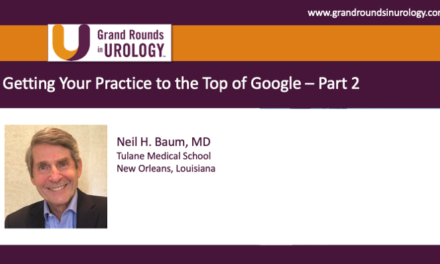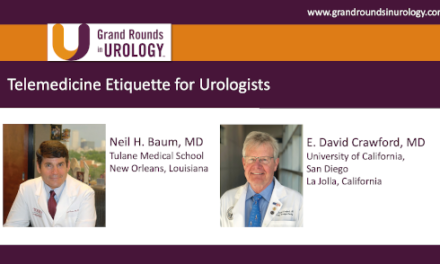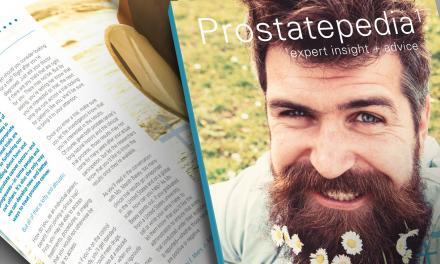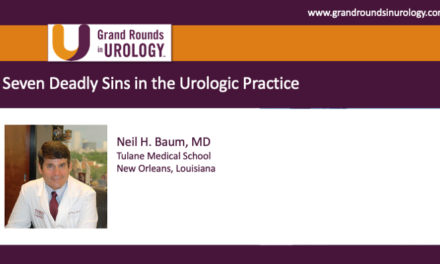Neil H. Baum, MD, presented “Financial Toxicity” for the Grand Rounds in Urology audience in February 2021.
How to cite: Baum, Neil H. “Financial Toxicity” February 2021. Accessed Apr 2024. https://grandroundsinurology.com/financial-toxicity/
Financial Toxicity – Summary
Grand Rounds in Urology Contributing Editor Neil H. Baum, MD, Professor of Urology at Tulane Medical School in New Orleans, Louisiana, discusses financial toxicity and how urologists can help their patients navigate the stress associated with medical expenses. An estimated 40% of newly-diagnosed cancer patients will deplete their assets within two years after diagnosis. The compounding stress over direct and indirect costs of cancer treatment can ultimately lead to financial toxicity. Patients at higher risk of financial toxicity include those with advanced stage cancer, minorities, low-income patients, and patients receiving chemotherapy and radiation therapy, among others. Similarly, other factors in a patient’s life, such as whether cancer will impact their ability to continue working, whether they are the primary breadwinner, and their level of health insurance coverage, can increase financial stress. Dr. Baum advises urologists to ask their patients if the costs will be a burden and direct them to a financial navigator, such as a hospital social worker. Urologists can also help patients by offering pricing transparency, connecting them to cancer support groups, and even asking pharmaceutical companies for reduced cost medications.
For more commentary on practice management and telemedicine from Dr. Baum, visit his Improving Your Urology Practice page.




